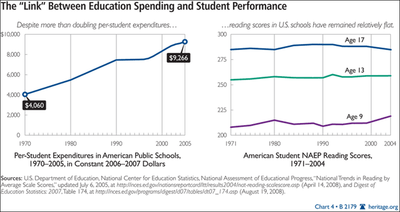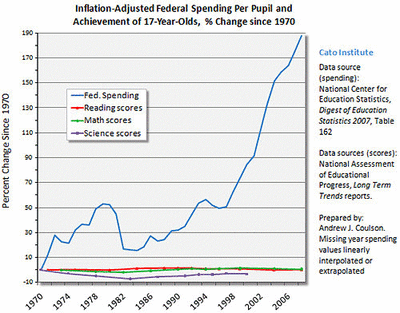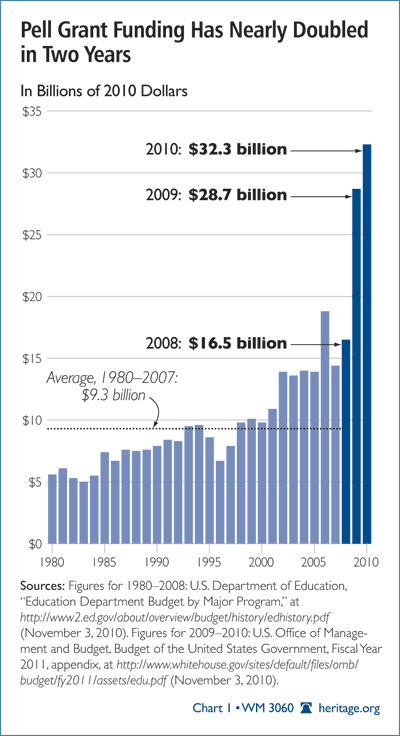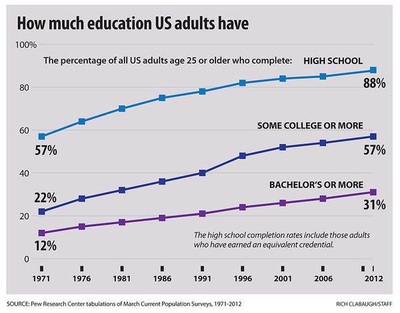
First, a little history. The Department of Education was formed in 1979 as a result of a campaign promise Jimmy Carter made to the teaches union. Formerly, the Department of Education was part of the Department of Health, Education and Welfare. Obviously, Carter felt that bigger government would be a solution. Next, ask yourself what they do. Most people will come up with the Administration of Student loans, i.e., Pell grants that are a maximum of $6000/year/student. Besides that, you're probably at a loss for what else they do. You would also be probably surprised that they have 5000 employees and a budget of approximately $70 billion dollars, of which under $20 billion are for Pell Grants. Other monies go to special education, subsidies to banks (seriously, the big banks need subsidies?), department administration, and state subsidies. Their official function according to their website is, "to establish policy to administer & coordinate most federal assistance to education, collect data on US Schools, and to enforce educational laws regarding privacy and civil rights."
Let's cut right to the chase, how effective have they been.
What then should we do? Re-incorporate the department of education back into the department of health, and welfare and significantly reduce its administrative budget. I am a big supporter of Pell grants and it is a good path to higher education. I believe that the increase in Pell grants, has led, in part, to the number of people getting a college education (chart). However, it has not been without problems. Most people have not heard the phrase, "Pell Runners", which has been a recent phenomenon and a significant problem. Specifically, a Pell runner is someone who gets an assumed identity, applies and gets a grant and enrolls in college. After one-two weeks, drops out of college, gets a refund from a college and is now gone, leaving the Dept of Education and the taxpayer to foot the bill. Senate Tom Harkin (D) has brought to light that for profit colleges have twice the default rate in Pell grants than not for profit colleges. I am aware of one New England Institution being investigated for possible Pell Grant fraud . What this institution does is heavily recruit students for its on line programs and does all the paperwork for them including applying for Pell Grants. Allegedly, they are enrolling students with no identity confirmation and no proof of High School transcript;they have a high incident of student attrition and as a result, a source of lost funds to the government. I have been in their "admissions office" and I will tell you unequivocally, it is not an admissions office, it is a call center, and this needs to be addressed.




 RSS Feed
RSS Feed
